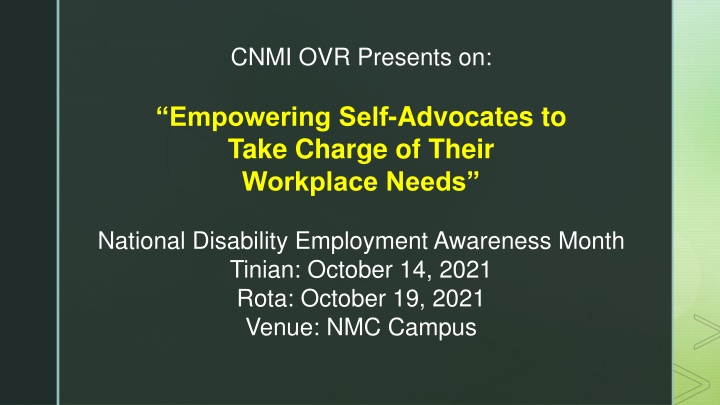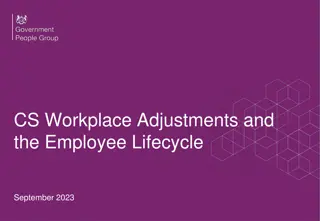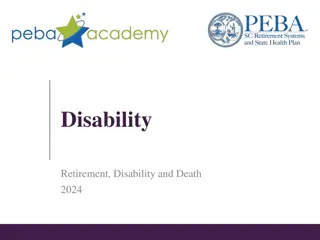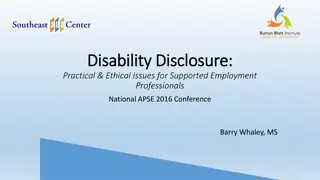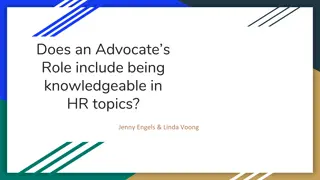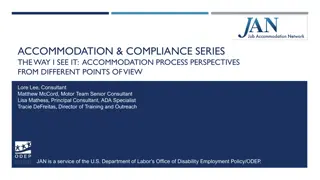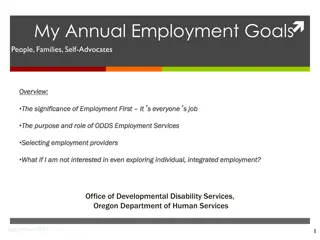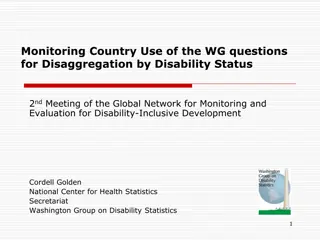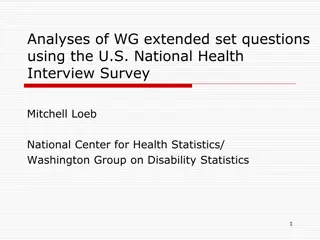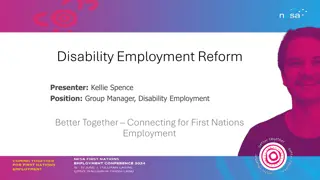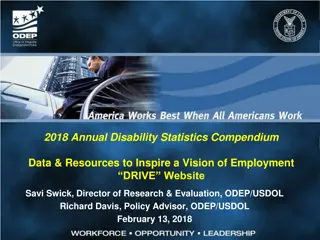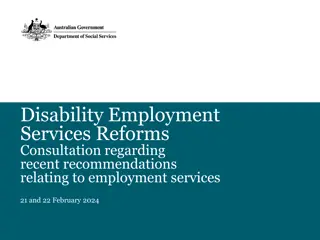Empowering Self-Advocates in the Workplace: National Disability Employment Awareness Month Event Presentation
Learn about self-advocacy, communication, job accommodations, and the importance of disclosing your disability in the workplace to ensure your needs are met effectively. Discover examples of reasonable accommodations and when to disclose your disability during the employment process. Empower yourself to take charge of your workplace needs.
Download Presentation

Please find below an Image/Link to download the presentation.
The content on the website is provided AS IS for your information and personal use only. It may not be sold, licensed, or shared on other websites without obtaining consent from the author.If you encounter any issues during the download, it is possible that the publisher has removed the file from their server.
You are allowed to download the files provided on this website for personal or commercial use, subject to the condition that they are used lawfully. All files are the property of their respective owners.
The content on the website is provided AS IS for your information and personal use only. It may not be sold, licensed, or shared on other websites without obtaining consent from the author.
E N D
Presentation Transcript
CNMI OVR Presents on: Empowering Self-Advocates to Take Charge of Their Workplace Needs National Disability Employment Awareness Month Tinian: October 14, 2021 Rota: October 19, 2021 Venue: NMC Campus
Self-Advocacy: Knowing what you want, what you do well, and what you have difficulty doing. It includes: - knowing your legal rights - your needs - and telling that information to the appropriate person.
What does all of this mean? COMMUNICATION is the key to getting your workplace needs met.
Job Accommodations It s all about identifying your needs & asking for help. You do not need to use special words such as Reasonable Accommodations There is also no need to mention the ADA when you are requesting for some assistance.
If you need help to do your job effectively, you need to disclose your disability. Disclosure means making the decision to tell another person about your disability. Be ready to explain how your disability is getting in the way of you doing your job effectively, and offer some accommodation ideas of your own.
Disclose to: - Your supervisor - HR department Note: If you do not require an accommodation, then there is no reason to disclose your disability.
Example 1: Tom has ADHD. He asks his supervisor for a private office to lessen distractions at work. Is this a reasonable accommodation? YES
Example 2: Sara is a Data Entry Clerk. She has low vision. Sara requested for assistive technology that can help her work on a computer more effectively. Is this a reasonable accommodation? YES
Disclosing your disability can happen At any time during the employment process: - Application - Interview People disclose at different times depending on their needs!
Keep in mind: If you are working for a company, and your disability is starting to get in the way of you performing to the best of your abilities, then it might help to disclose your disability before any performance issues occur. Note: When having this discussion with your supervisor, remember to also talk about your abilities.
How to disclose your disability: Best to submit your accommodation request in writing. Next slide: Sample Accommodation Request Letter from the Job Accommodations Network (JAN)
Interesting Facts Reasons why some employees do not disclose their disability: - Lack self-advocacy skill - No support - Fear discrimination
Helpful Tips - Understand yourself well (your disabilities, abilities, accommodation needs, etc.) - Have a good idea of how you can meet job- related challenges - Learn some self-advocacy skills (when and how to disclose your disability)
Helpful Tipscontinuation - Empower yourself to take charge of your life and your needs - Learn your rights under the ADA (check out JAN) - Be ready to share disability documentation - Ask yourself: How can technology help me do the job I want to do?
**Americans with Disabilities Act (ADA)** - Protects the rights of individuals with disabilities - Covers employment practices from: recruitment to pay and all other activities in between Employment discrimination is also covered under the ADA.
Contact Information: Office of Vocational Rehabilitation Mailing Address: P.O. Box 501521, Saipan, MP 96950 Phone: (670) 322-6537 or 322-6538 Email: nmidir@ovrgov.net Website: www.ovrgov.net Facebook: CNMI OVR
